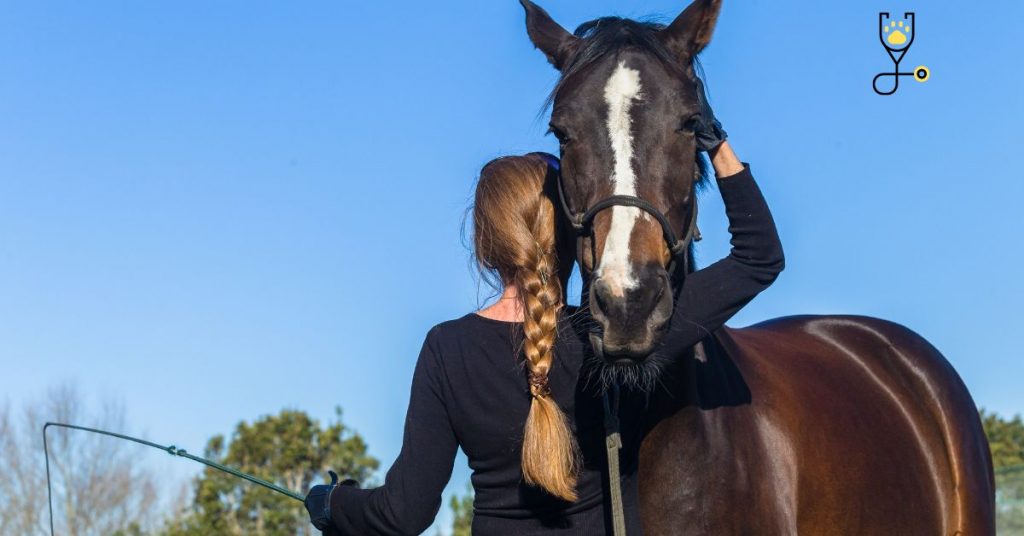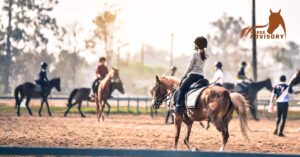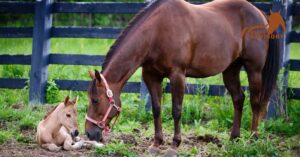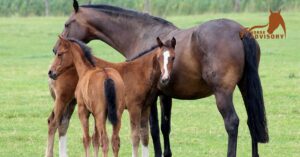Training a horse is an extremely rewarding experience, but it can also be a lot of work. Horses are intelligent creatures and they can learn quickly if you use the right techniques. In this post, we’ll go over the basics of training a horse so that you can get started on the right foot. We’ll discuss how to teach your horse basic commands and how to handle difficult behaviors. We’ll also provide some tips for keeping your horse happy and healthy while you’re training him. So, if you’re ready to start training your horse, keep reading!
How to Train Your Horse?
Training your horse is a rewarding experience that requires dedication and patience. There are many approaches to training horses, but some key elements remain consistent regardless of the style or method you choose. Here we will look at five important steps for training a horse:
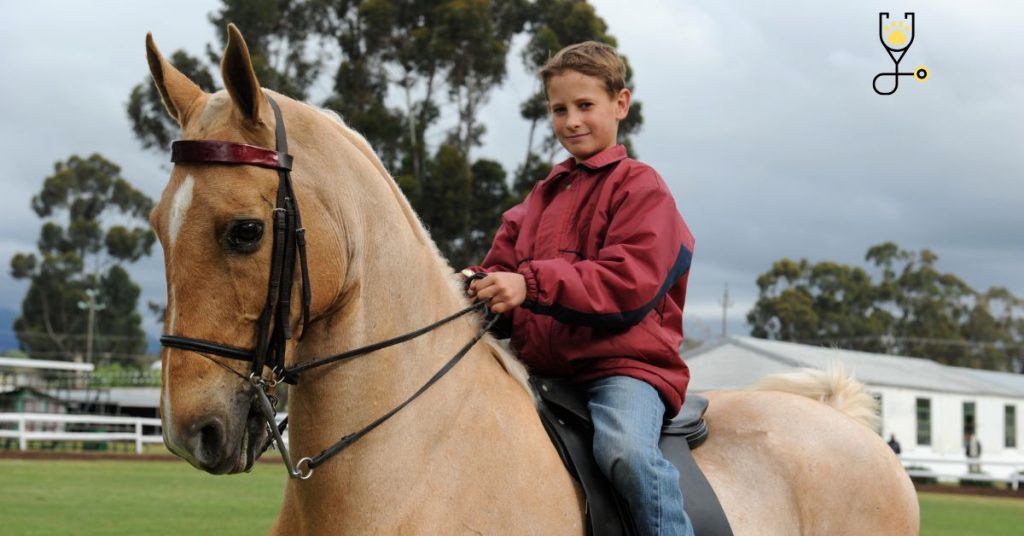
1. Establishing Respect and Trust: This is the cornerstone of any good horse training program. Respect and trust must be established between you and the horse before any other training can take place. Do this by handling the horse in a calm, gentle manner and consistently rewarding good behavior with praise or treats.
2. Proper Groundwork: This is important for teaching your horse to move in response to your cues without ever having to use force or aggression. Start by mastering basic leading techniques, then progress to teaching the horse how to yield its hindquarters, back up, stop when asked, pick up its feet, etc.
3. Reward-Based Training: When training your horse on a new behavior it’s best to reward each small step taken towards success rather than waiting until the full behavior has been performed correctly before giving a reward. This will help the horse understand what you are asking of him and encourage him to keep trying to achieve the desired result.
4. Establishing Boundaries: When training a horse, it’s important to set clear limits on behavior. Letting your horse know what is acceptable and what isn’t is an essential part of maintaining control and preventing accidents or undesirable behaviors from occurring in the future.
5. Consistency: Training your horse involves repetition and consistency is key for any successful program. Make sure that all trainers involved with the animal use similar methods and rewards so that there is no confusion as to what is expected of them. Having consistent expectations will make it easier for your horse to learn new behaviors quickly and reliably.

What to Avoid When Training
When training your horse, it’s important to avoid techniques that could be damaging or counterproductive. Here are some of the most common mistakes trainers make:
1. Using Too Much Force: This can lead to the horse associating you with negative feelings, making him unwilling and unresponsive. Always use gentle methods such as releasing pressure when he does something right rather than punishing him for wrong behavior.
2. Not Offering Rewards: Horses need positive reinforcement in order to learn correctly and efficiently. Make sure to reward good behavior every time so that the animal knows he is doing something right and will continue in this direction.
3. Overworking Your Horse: Training should always be done in short bursts, as horses have a limited attention span and can become easily stressed or overwhelmed if asked to do too much. Make sure to schedule regular breaks in between training sessions so that your horse has time to relax and recover properly.
Why Train Your Horse?
Training your horse is an important part of horse ownership and can greatly improve the quality of life for both you and the animal. Here are some of the benefits of training:
1. Improved Safety
Training your horse will make him more responsive to your commands, resulting in better control in potentially dangerous situations. This can be especially beneficial if you have young children around or plan to take your horse on rides through unfamiliar areas where sudden obstacles could appear.
2. Greater Bond with Your Horse
When you train your horse, you’re teaching him how to communicate with you and trust that you won’t hurt or harm him. This helps develop a strong bond between yourself and the animal which can lead to improved performance on both sides of the equation.
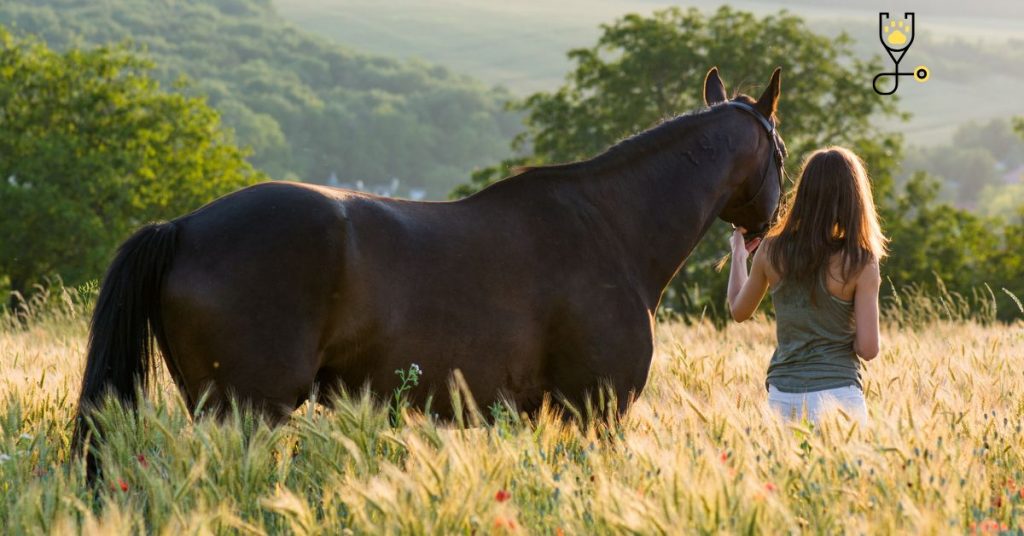
3. Easier Handling
Trained horses are much easier to handle and manage, reducing the amount of time and effort it takes to care for them on a daily basis. This can make owning a horse more manageable and enjoyable as you don’t have to worry as much about unexpected behaviors or problems arising due to a lack of training.
How To Keep Your Horse Healthy And Happy
Training your horse is important, but it’s also essential to make sure that he remains healthy and happy. Here are some tips for keeping your horse in top condition:
1. Regular Exercise: Ensure your horse gets plenty of exercises to keep him fit and active. This can be anything from daily rides to turnout time in a paddock or arena.
2. Healthy Diet: Feed your horse a nutritionally balanced diet so that he gets all the vitamins, minerals, and other nutrients he needs for optimal health.
3. Grooming: Regular grooming is essential for keeping your horse’s coat clean and healthy. Make sure you brush out any tangles or debris that may be present in his mane or tail to prevent skin irritation and discomfort.
4. Safe Environment: Provide your horse with a safe environment where he can feel secure and comfortable without worrying about potential predators or hazards.
By taking care of your horse and giving him the training and attention he needs, you can rest assured that he will remain healthy, happy, and responsive to your commands. With a little patience, consistency, and dedication from your side, you can create an unforgettable bond with your animal companion!
Conclusion
Training your horse is a great way to improve safety and create a strong bond between you and the animal. It’s important to use gentle methods, reward good behavior, set clear boundaries, and be consistent in all training sessions. With the right approach, you can ensure that you have a well-trained and responsive horse who will be an absolute pleasure to own.
Frequently Ask Questions
Q: How long should training sessions last?
A: Training sessions should generally be kept short, as horses have a limited attention span. Sessions can typically last anywhere from 15 minutes to an hour, depending on the complexity of the task being taught and the progress being made.
Q: Should I use treats for rewards?
A: Treats can be a great way to reward good behavior, but it’s also important to pair them with praise and verbal encouragement. This will help ensure that your horse associates positive feelings with you rather than just food rewards.
Q: Is there such a thing as too much training?
A: Yes, it’s possible to overwork your horse by trying to cram too much training into a single session. Make sure to break up training into multiple shorter sessions over time, as this will ensure that your horse is able to retain the lessons without getting stressed or overwhelmed.
Q: Should I train alone or with someone else?
A: It can be beneficial to have a second person present during training sessions, particularly if you’re just starting out and need help with technique or guidance. Having someone else there also provides extra safety in case of any unexpected behavior from the horse. Ultimately, it’s up to you whether you prefer to work alone or with a partner.
Q: What types of rewards should I use?
A: Rewards can come in the form of treats, verbal praise, scratches behind the ears, or even just a few moments of relaxation. The important thing is to find something that your horse genuinely enjoys and use it consistently as a reward for good behavior. This will help him understand what’s expected of him and reinforce positive behaviors.

